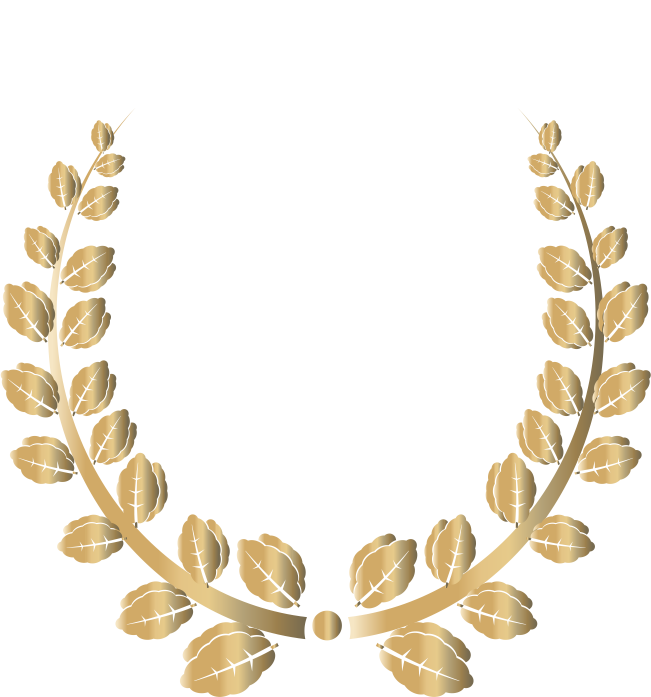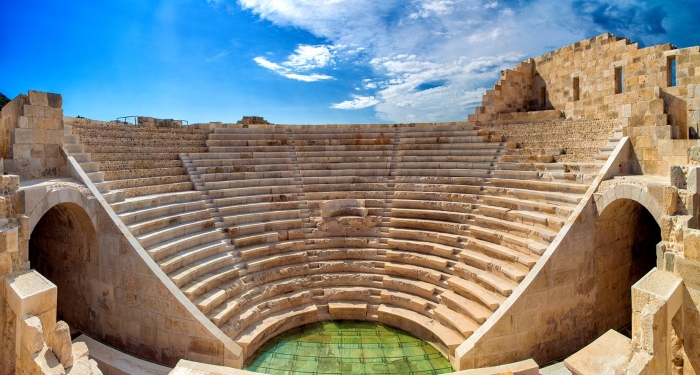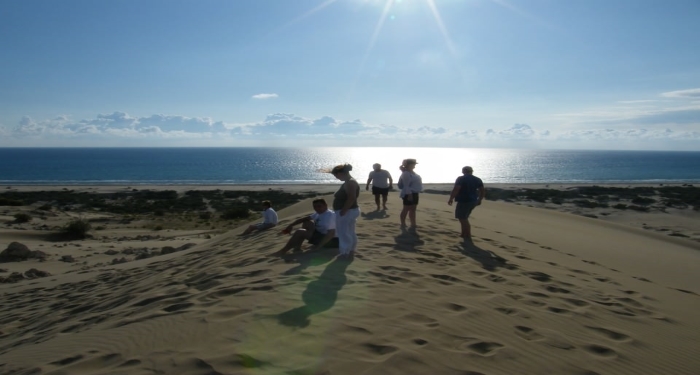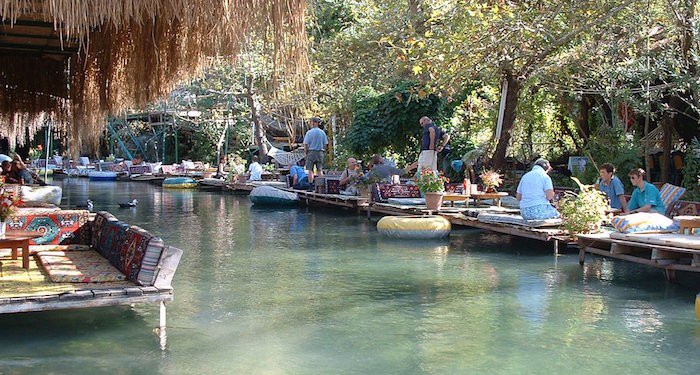
Informationen zum Kongress

BEGLEITEN SIE UNS
U nser Kongress richtet sich an Personen, die sich über ein Forum mit nationalen und internationalen Kollegen vernetzen möchten, Beiträge publizieren möchten, und gleiche oder ähnliche Interessen zu teilen. Selbstverständlich wollen wir Sie auf die Erlebnisse in der Türkei neugierig machen, und einen bleibenden, positiven Eindruck von Patara hinterlassen!
Wir laden Sie herzlich ein, um an unserem „Innovation and Global Issues in Sozialwissenschaften 2017“ Kongress (InGlobe) teilzunehmen. Die Konferenz findet vom 27.-29. April in der Antikstadt Patara, Antalya, die von einer freien Akademiker-Plattform zusammen mit den NGOs und weiteren Universitäten organisiert wurde, statt.
Das Kongress "Innovation and Global Issues in Sozialwissenschaften 2017" wird von dem Gouverneursamt Kaş, der Gemeinde Kaş und dem Amt für Kultur und Tourismus Patara unterstüzt. Die Konferenz wurde in 15 Ländern angekündigt. Dabei versuchen wir wissenschaftliche Arbeiten, die sich mit aktuellen Angelegenheiten, globalen Ereignissen, und innovativen Ansätzen in Sozialwissenschaften beschäftigen, zu umfassen. Diesbezüglich sind die Präsentationen auf der Konferenz in Türkisch oder Englisch zu halten. Die Veröffentlichung der Arbeiten in folgenden Sprachen zu verfassen: Deutsch, Russisch, Französisch, Georgisch, Türkisch (in allen Dialekten), sowie Englisch.
Die Arbeiten werden in Verbindung mit den ISBN Nummern veröffentlicht. Falls Teilnehmer den Wunsch haben ihre Arbeit in einem Journal des Kongress-Partners zu veröffentlichen. Die Arbeiten werden methodisch nach der Peer-Review überprüft. Beste Arbeiten werden selbstverständlich ausgezeichnet.
InGlobe 2017 bietet eine ideale Gelegenheit, um Akademiker, Forscher und Studierende verschiedener Disziplinen zusammenzubringen, neue Themen zu diskutieren, und neue sozialwissenschaftliche Entwicklungs- und Forschungstrends zu entdecken. Wir akzeptieren Arbeiten, die seitens Akademiker, darunter Professoren, Studenten, Praktiker sowie Industriepraktiker verfasst wurden. Selbstverständlich sind auch Zuhörer zur Konferenz eingeladen.
Innovative Ideen und Entwicklungen bilden den Schwerpunkt unserer Konferenz. Daher beziehen wir uns auf folgende sozialwissenschaftliche Themenbereiche u.a. Kommunikation, Rechnungs- und Finanzwesen, öffentliche Finanzen, Wirtschaft, Management, Business, Marketing, Bildungswesen, Soziologie, Psychologie, Politikwissenschaft, Recht, und weitere. Ebenso beziehen wir uns auf geisteswissenschaftliche Bereiche, u.a. Anthropologie, Archäologie, Architektur, Kunst, Ethik, Volkskunde, Geschichte, Sprachwissenschaften, Literatur, Methodische Anwendungen, Musik, Philosophie, Dichtung und Theater.
Wir würden uns freuen Sie zwischen dem 27.-29. April in Patara zu treffen, um Ihren Beitrag entgegen nehmen zu können.
Eingereichte Arbeiten werden bezüglich ihrer Originalität und ihrer Ausführung seitens der Peer-Review-Methode überprüft.
Fristen
- Tagungsort: Patara, Antalya/Türkei
- Kongressdaten: 27.-29. April 2017
- Einsendetermin für den Arbeit: 20. März 2017
- Frühzeitige Anmeldung: 25. April 2017
- Annahme der Arbeit: Nach Einreichung, asap
- Anmeldefrist bis: 1. April 2017
- Veröffentlichung des Programms: 10. Juni 2017
- Einreichung der kompletten Arbeit: 1. Juni 2017
- Veröffentlichung des E-Buchs: 30. Juni 2017
Gebühren
| Frühzeitige Anmeldung* | Registrationsgebühren | Hotel | |
|---|---|---|---|
| Akademiker | 60 EUR | 70 EUR | 40 EUR pro Tag |
| Studenten** | 50 EUR | 60 EUR | 40 EUR pro Tag |
| Online-Präsentation*** | 40 EUR | 45 EUR | - |
| Zuhörer**** | 25 EUR | 30 EUR | 40 EUR pro Tag |
WICHTIGE INFO!
1 - Barbezahlung, falls Sie außerhalb der Türkei anreisen. Wir bitten um Kontakt.REGISTRATION BEINHALTET
- Präsentation
- Mobile-Broschüre
- Konferenzutensilien- und Taschen
- Teilnehmeurkunde
- Ausstellungen sowie Seminare
- Sonnenuntergang auf den Sandbergen
- Patara Tour
HOTELRESERVIERUNG BEINHALTET
- Doppelzimmer für 1 Erwachsenen
- Frühstück
- Abendessen + Getränk
- Gemeinschaftsräume
- Tee, Kaffee
- Wi-Fi
RICHTLINIEN
Um Infos zu den Richtlinien zu erhalten, klicken Sie bitte auf die darunter liegenden Fenster. Für die Veröffentlichung der Arbeiten, sind die Richtlinien zu befolgen. Natürlich können Sie die Richtlinien auch runterladen, indem Sie hier klicken.AUTHOR GUIDELINES
NOTES FOR WRITERS
1- Articles submitted to the InGlobe congress should be original contributions and should not be published previously or should not be under consideration for any other publication at the same time. If another version of the paper is under consideration by any other publication, or has been, or will be published elsewhere, authors should inform the congress regulatory board at the time of submission.
2- If a submitted article is selected for publication, its copyright will be transferred to the Congress Executive Board . Published papers can be cited by giving the necessary bibliographical information. For re-publication of any article in full-text permission must be sought from the editors.
3- All submissions are subject to a double blind peer review. If necassary, we consider to send a 3rd referee.
4- Authors bear responsibility for their contributions. Statements of fact or opinion appearing in article are solely those of the authors and do not imply endorsement by InGlobe.
5- Author should send their articles or book reviews including their address and cell phone numbers to the e-mail address [email protected].
6- Before submission all authors are asked to fill in the article submission form.
7- Studies are going to accepted in Turkish (All Dialects), English, German, Russian, French, Georgian languages.
8- Congress presentations will only be in "Turkish and English". English abstracts of the work to be submitted are also required. The studies should include English and a second language (such as Turkish and German) with 100-word abstract and maximum five keywords. Participants who wish to make a presentation in another language may communicate with us by preparing presentation notes in English or Turkish.
9- Only extended abstract summaries and / or full texts of the work presented at the congress will be published in the congress books. Authors who wish to publish extended abstracts should include an extended summary in English, as well as the publication language. In the full texts to be published, a summary in the publication language and an English abstract should be included. If the publication language is in English, it is sufficient to have only the English summary and / or abstract.
10- Articles should be between 6,000-8,000 words. Book reviews should be between 1500-2000 words. Case analyses should be between 3000-5000 words including footnotes. Extended abstracts should be between 500-1000 words.
STYLE GUIDELINES
11- Summaries and keywords in both publication language and in English must be added to studies. Each of the abstracts should have an average of 100 words, and the key words in both languages should not exceed five words.
12- Submissions should be prepared using Word (*.docx) Microsoft Office 2007 and later, in Times New Roman and one line space. 12 font should be used within text while 10 font should be preferred for footnotes. Paragraphs should start from 1,25 cms inside. Spaces before and after lines should be 6nk.
13- Articles Word page margins should be 2,5 cms from every side with A4 form.
14- You should leave two lines before the heading. The first letter of the main title should be written in capital letters and centered on the page (Times New Roman 14 punto). There should be one line space after the headline.
15- Other titles, keywords, and JEL Codes should be written in bold and first letters in capital letters. It should lean to the left.
16 - Topics in the works must be numbered using decimal numbers such as 1., 1.1., 1.1.1. starting from first headline(excluding bibliography).
17 - Names and surnames of authors should be written clearly under the title. Academic title, institute or company and e-mail of authors should be placed in footnotes. There should be one line space after this line.
18 - The manuscript should contain 2-3 classification codes. Check here for JEL codes. (https://www.aeaweb.org/econlit/jelCodes.php?view=jel)
19- Authors are responsible for making sure that their article conforms to the style guidelines of InGlobe Congress.
20- References and bibliography of the studies should be prepared according to the American Psychological Association (APA) method. Studies by two authors (Surname and Surname, Year of Study: Page Number). In the case of three or more authors (Surname of the first author et al., Year of Study: Page Number). When an author(s) has published more than one cited document in the same year, these are distinguished by adding lower case letters (a, b, c, etc.) after the year and within the parentheses (Gillespie, 1997a: 25) (Gillespie, 1997b: 58). For multiple references in a sentence , the citations should be written within the parentheses and separated them with semicolons (Vural, 2011: 17; Duman, 2007: 82). If there are multiple authors with the same surname, the first letters of the authors' names are also used (Yılmaz A., 2005: 157) (Yılmaz B., 2010: 27). If explanation is necessary in the text, in Times New Roman with 10 pt and single-spaced footnote method can be used.
21- Tables and figures should be numbered consecutively, as Table 1, Figure 1, in the text. All heading should be written bold but only the first letters should be capital. The titles of the tables and figures should be placed at the heading of the table or figures and centered. References belonging to table or figure should be under them as appropriate to in-text citation rules.
22- The list of references should be presented in alphabetical order at the end of the text. If the author referred to more than one publication from the same source, the oldest publication should be listed first. If the author referred to more than one publication from the same source published in the same year, the publications should be numbered using the letters a, b, c…, as citation in the text. If one author’s several publications, some with one some with two or more authors, are referred to, the publications with one author should be written first. Page numbers of articles published in the journals and chapters in the edited books must be written.
NOTES
– Book: Surname of the first author, first letter of the name., Surname of the second author, first letter of the name. and Surname of the third author, first letter of the name. (Print Year). Name of Study, Place of Publication: Publisher.
– Article: Surname of the first author, first letter of the name., Surname of the second author, first letter of the name. and Surname of the third author, first letter of the name. (Print Year). "Title of Article", Name of the Journal, Volume (Issue): pp. Page Range.
– Book Section: Surname of the first author, first letter of the name., Surname of the second author, first letter of the name. and Surname of the third author, first letter of the name. (Print Year). “Title of Section”, Name of the Book, Place of Publication: Publisher, pp. Page Range.
– Editor / Translation Book: Surname of the first author, first letter of the name., (Print Year). "Title of Study”, Name of the Book, (Ed.) Last Name of the Editor/ Translator, first letter of the name.,Place of Publication: Publisher, pp. Page Range.
– Thesis: Surname of the author, first letter of the name. (Year of Thesis). Name of the Thesis, Unpublished Master/ Doctoral Thesis, The city where the university is located: The name of the University and the name of the Institute.
– Internet Sources: Surname of the author, first letter of the name. (Date of Study). Title of Study, Access Link, (Access Date).
– Paper: Surname of the author, first letter of the name. (Date of Paper). Title, Name of the Paper, Access Link, (Access Date).
ÜBER PATARA
Patara (lyk. Pttara), war eine antike Stadt an der Mittelmeerküste Lykiens in der heutigen Türkei. Sie liegt nahe der Mündung des antiken Flusses Xanthos, türkisch Eşen Çayı, beim heutigen Gelemiş. In Patara sind historische Orte zu besichtigen. Außerdem befinden sich Orte wie Fethiye oder Kaş in der Nähe von Patara, die ca. eine einstündige Autofahrt erfordern. Des Weiteren können Sie die Schluchten von Saklikent besuchen. Patara gilt als Geburtsort des Heiligen Nikolaus, der in der Nähe von Myra (Demre) die meiste Zeit seines Lebens verbracht haben soll. Patara kann als ein himmlisches Geheimniss des Mittelmeeres betrachtet werden.
Auszeichnungen
EVALUATIONSKRITERIEN
- Einhaltung der Schreibregeln
- Einhaltung der grammatischen Regeln
- Verwendung richtiger Begriffe
- Vielfalt der Bibliographie
- Originalität

Erfolgsauszeichnungen

Ehrenpreis

Bester Forscherpreis

Wissenschaftspreis junger Forscher
Auszeichnung bezüglich des Bereichs

Wissenschaftspreis

Wissenschaftspreis

Wissenschaftspreis

Wissenschaftspreis

Wissenschaftspreis

Wissenschaftspreis

Wissenschaftspreis







 English
English Türkçe
Türkçe Deutsch
Deutsch Русский
Русский